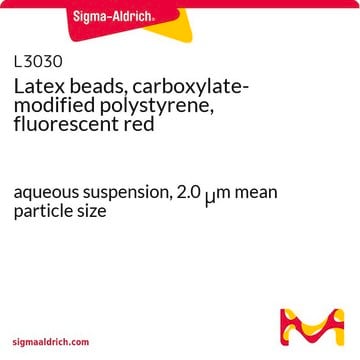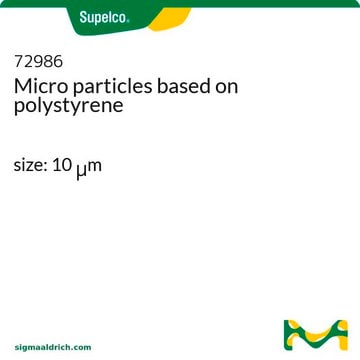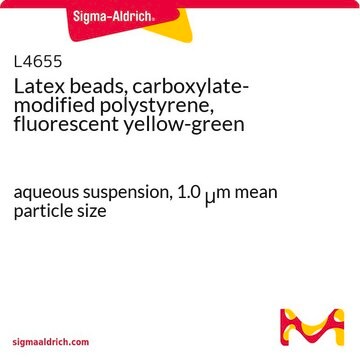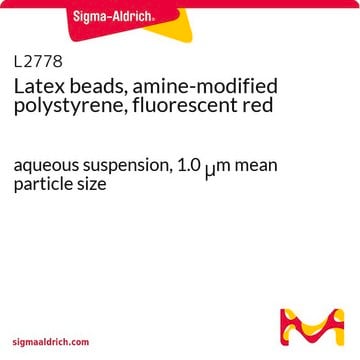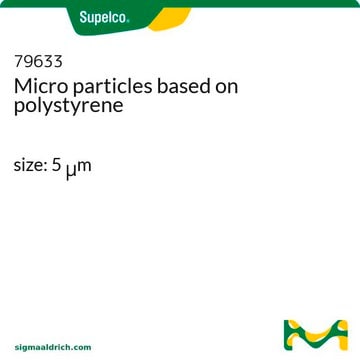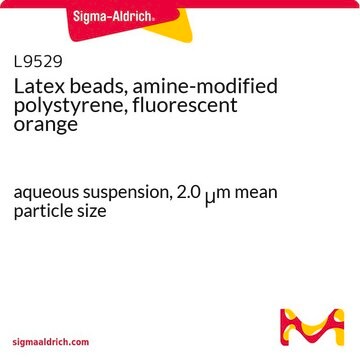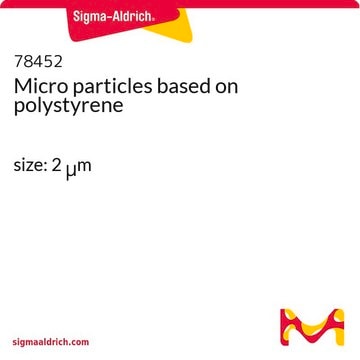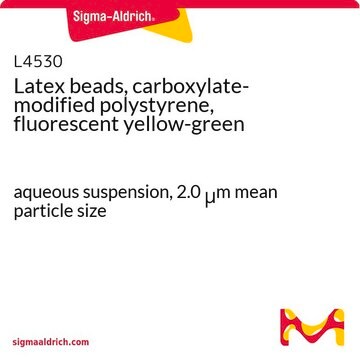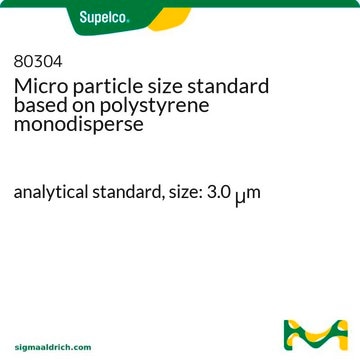LB30
Latex beads, polystyrene
3.0 μm mean particle size
Synonyme(s) :
Latex Beads, Latex Microspheres
About This Item
Produits recommandés
Forme
aqueous suspension
Composition
Solids, 10%
Conditionnement
pack of 1 mL
pack of 15 mL
pack of 2 mL
Taille moyenne des particules
3.0 μm
Vous recherchez des produits similaires ? Visite Guide de comparaison des produits
Description générale
Code de la classe de stockage
12 - Non Combustible Liquids
Classe de danger pour l'eau (WGK)
WGK 3
Point d'éclair (°F)
Not applicable
Point d'éclair (°C)
Not applicable
Certificats d'analyse (COA)
Recherchez un Certificats d'analyse (COA) en saisissant le numéro de lot du produit. Les numéros de lot figurent sur l'étiquette du produit après les mots "Lot" ou "Batch".
Déjà en possession de ce produit ?
Retrouvez la documentation relative aux produits que vous avez récemment achetés dans la Bibliothèque de documents.
Les clients ont également consulté
Notre équipe de scientifiques dispose d'une expérience dans tous les secteurs de la recherche, notamment en sciences de la vie, science des matériaux, synthèse chimique, chromatographie, analyse et dans de nombreux autres domaines..
Contacter notre Service technique
